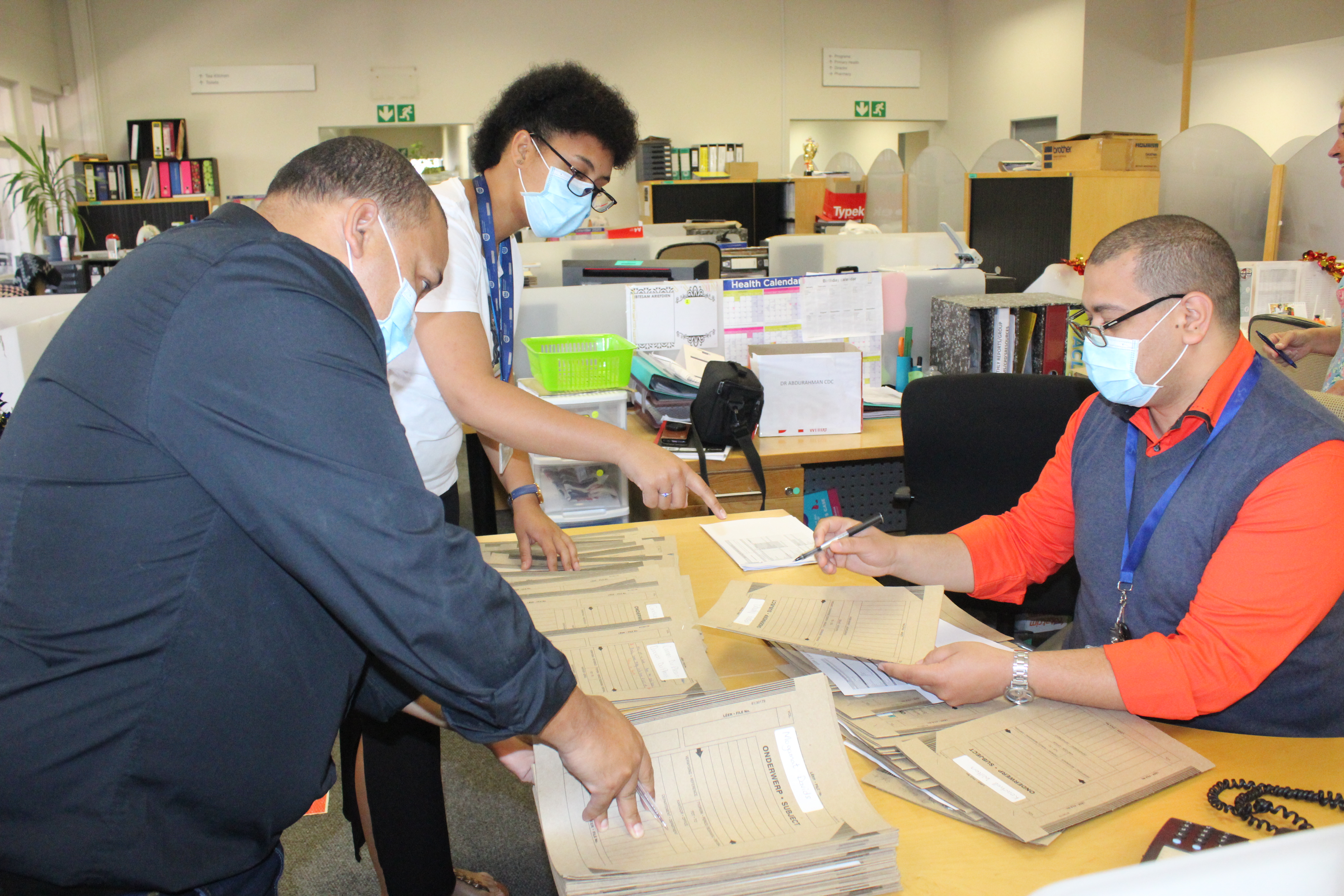
News
Isolating correctly crucial to limit the spread of Covid-19
“People are becoming resistant to isolation adherence, which is a major concern if we are striving to reduce the infection rate in the high-risk areas in the Metro,” says Eugene Engle, Contact Tracing Team member for the Western Cape Government Health Klipfontein and Mitchells Plain Substructure.
Since the resurgence of COVID-19 in October, the Contact Tracing team members in the Klipfontein and Mitchells Plain Subdistrict has recorded a 53% increase in new COVID-19 infections this past seven days. The high-risk areas are Gugulethu, Tafelsig and Lentegeur, which has seen the highest number of new active cases for the last seven days. Contact Tracing Teams across the Cape Metro are also reporting a rapid increase in new COVID-19 infections.
To reduce the infection rate, the Western Cape Government Health COVID-19 Contact Tracing Teams are following-up on all new positive COVID-19 cases and tracing all close contacts of each infected person to ensure that the 10-day isolation period is adhered to and supported. Contact tracing forms part of the overall COVID-19 surveillance system in the Western Cape which assists the Department in identifying flare ups and can activate a local response team.
“Each Contact Tracing team member has approximately forty positive COVID-19 infected cases placed on our desks per day since the resurgence in October, which is more than the first surge in March,” says Eugene.
“When we make contact with a few of these COVID-19 positive cases after they are tested positive, we can hear that the person is not isolating, and some people admit to walking in a shopping centre getting food or we are immediately dismissed, threatened and others refuse to isolate,” explains Mark Lewin, Contact Tracing Team member in the Klipfontein and Mitchells Plain Subdistrict.
“We make contact with infected people and they are visiting family members, attending social events, dropping their kids at school, working, having church services with a few congregation members at their home, shopping at a mall because they don’t have anyone else to assist with shopping, and others refuse our counselling advice,” says Eugene.
“There are cases that we are unable to make contact with as incorrect contact details are provided or we find that people come from the rural areas to be tested in the Metro and provide family members contact information living in the Metro who are not COVID-19 positive,” says Micayla Heuvel, also a Contact Tracing team member in the Klipfontein and Mitchells Plain Subdistrict.
“COVID-19 must be taken seriously. Many families have lost their loved ones and friends, families, colleagues and neighbours are infecting their loved ones who are vulnerable and have underlying health conditions. We urge our communities to adhere to the COVID-19 preventative measures such as wearing a mask and avoid crowds and to stay home if infected, awaiting results or if you are a close contact,” says Eugene.
Further reports from our local surveillance team indicate that gatherings at social events, going to shopping centres while not adhering to protective measures such as wearing a mask and keeping a distance has led to quite a few cases testing positive. We call on the citizens of each of these subdistricts and as a collective to do their part so we can bring the situation under control again. We all have a role to play through our own actions.
Our behaviour will be influenced once we acknowledge and accept that the virus is not gone but will be with us over the holidays and beyond. Therefore, we need to remain safe and protect each other by:
- Wearing a mask properly is of life-saving importance. You must always wear your masks when outside of your home. There can be no exceptions.
- You must avoid crowded and confined spaces at all costs. This is where super-spreader events take place.
- You must urgently reconsider hosting all non-essential gatherings of people this year, especially indoor gatherings with poor ventilation.
- You must ensure there is always good ventilation whenever you’re in public. The virus droplets spread by air in confined spaces, and so fresher is better.
- You must wash your hands regularly with soap and water or use sanitiser.
- If you feel sick, you should not leave your home unless it is to get healthcare treatment. You must first call our hotline on 080 928 4102 for guidance on the next steps.
- You should also not visit someone who is sick, and find other ways to provide support, like delivering a meal to a neighbour’s doorstep.
Every single resident should assume that COVID-19 is everywhere and in the air they breathe. They are urged to take all the necessary precautions at every point along their journey to stay safe and move forward responsibly. If you are sick, stay home and arrange a COVID-19 test. Do not ignore the isolation and quarantine guidelines – it may cost someone their life.
Monique Johnstone
Principal Communications Officer
Western Cape Government Health
Monique.johnstone@westerncape.gov.za
Cell: 079 908 4856


